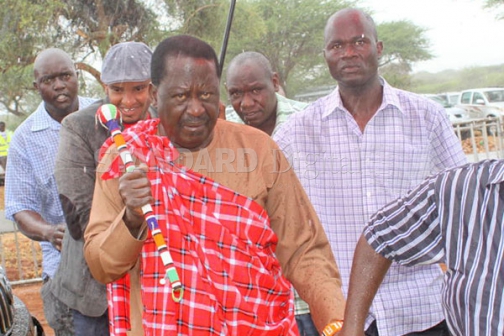×
The Standard e-Paper
Home To Bold Columnists

The Kikuyu Council of Elders has called on politicians to go slow on agitation for implementation of the controversial Truth, Justice and Reconciliation (TJRC) report.
In a statement, the elders also questioned CORD leader Raila Odinga's timing in calling for implementation of the report, warning that it could reignite animosity among communities ahead of the August General Election.